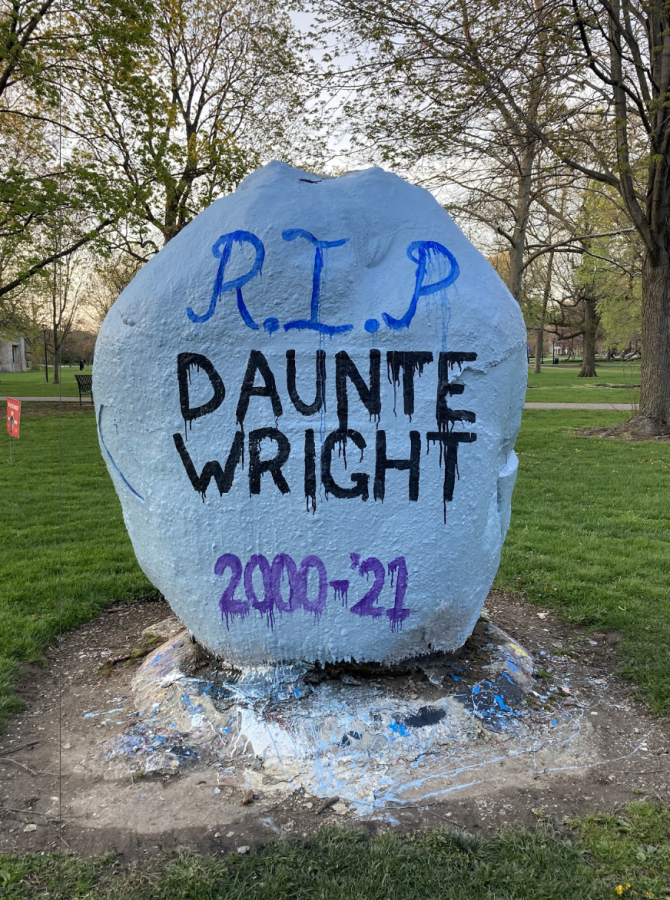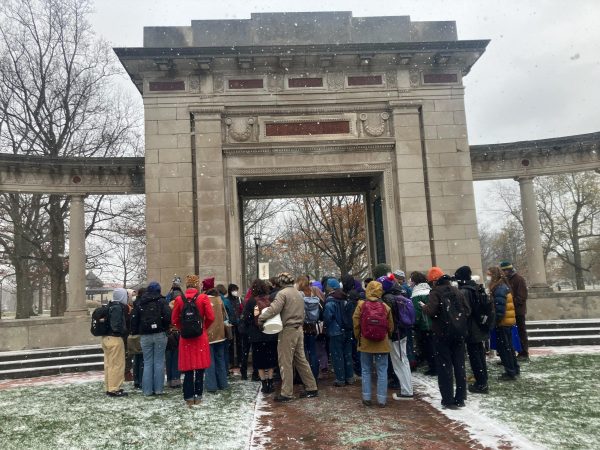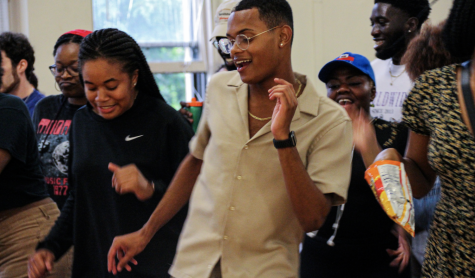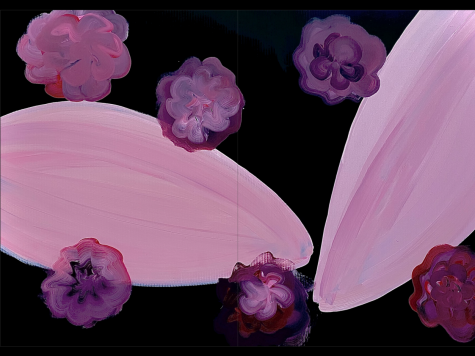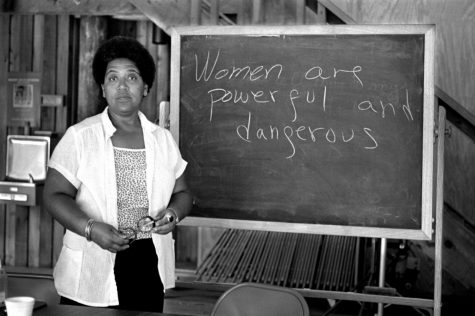A Letter From the Organizers of the Daunte Wright Vigil
“And as they took it over, it lost its militancy. They ceased to be angry. They ceased to be hot. They ceased to be uncompromising. Why, it even ceased to be a march. It became a picnic, a circus. Nothing but a circus, with clowns and all.”
-Malcolm X
We found ourselves suffocating under the pressure of constant Black death. The names piled against each other. The 2020 presidential election had passed, and we still felt hopeless. Oberlin feels like a liberal utopia we will never truly have full citizenship status to. We felt policed, seen but not respected. Assignments piled on assignments, names piled on names, and we felt like we were drowning. Everywhere we saw Black death and performative white empathy. We began to feel small — not at all empowered by the prestigious education we were supposed to be receiving. We felt unsafe in our Black bodies. We were saddened by the world around us and isolated in this strange liberal bubble.
Daunte Wright was murdered by police on Sunday, April 11, 2021. While his family was informed of the tragic news, as the loss of a mother’s son became a reality, it was just another day on Oberlin’s campus. The wealthy, white student body that makes up this private liberal arts school took all but five minutes out of their day to post a “R.I.P. Daunte Wright” Instagram story, and then they went on with their lives — laughing in the cafeteria lines and sitting under the sun in Wilder Bowl. Daunte was 20 years old, the same age, if not younger than many Oberlin students. I remember feeling so fucking angry. Yes, we were angry at the pig, Kimberly Potter, who shot Wright, but we were also enraged by what is supposed to be our community and their lack of interest in the murder of a young Black man. The next day, Monday, April 12, we began working on creating a space so loud, so disruptive, that it would be impossible to ignore.
We were motivated to plan the vigil, because we were fed up with feeling helpless. We were fed up with seeing mirages of activism poorly executed by white “allies.” We wanted to create a space for civil disobedience that centered Black voices without the guise of respectability politics — Black voices that could be angry, bitter, sad, and joyful without interference from the white ego.
Once we publicized the vigil and word began to spread, it wasn’t long before the administration wanted to establish their control over the event. When pressured to register with student activities, we respectfully declined, as we wanted to ensure the event stayed student-run and unadulterated by the administration. Community action in response to police brutality is inherently rebellious. To mourn the deaths of Black people murdered by the police is to protest the state. Allowing the administration to sponsor the vigil would pacify the movement, and it would no longer be an act of civil disobedience. It was clear to us from the beginning that we were not going to ask a white institution for permission to take up space as Black people, and we’re proud to say we stuck to that decision.
There were many moments when we felt like giving up. We took upon this burden while being full-time students and workers. The lack of support from the administration was predictable, but we were most disheartened when the lines were drawn by the administration and many of our peers wavered in their commitment to the cause — leaving us to rely solely on each other. We were disgusted by the Oberlin administration’s threats to retaliate against us, but ultimately, we weren’t surprised. Oberlin loves to monetize Black labor and activism, but it in no way affirms Black students on campus. The emotional labor and hardships we had to endure to create this space was definitely worth it, but why must we Black femmes sacrifice our mental health to advocate for our community?
Through this experience we’ve learned to trust our community. The joy we felt at the vigil surrounded by our peers as we shared prayers, prose, and songs in grief was indescribable. Our unapologetic displays of happiness, the names of our murdered brothers and sisters graffitied across the Memorial Arch, these are memories we will cherish forever. The vigil proclaimed the death of all white supremacist structures. It was a ballad of freedom spelled out in roses and tulips. It was a place where the light of our fallen comrades shone despite white supremacy’s insistent need to snuff them out. It was a call to action, to free all our people. The vigil was not just a singular moment, but a continual effort to memorialize and honor Black life.
We are currently in talks with the administration about funding a permanent memorial on South Campus. If it was not for the amazing community turnout, we would not have this opportunity, and we greatly appreciate everyone who attended the vigil and provided materials. Also, thanks to everyone who donated funds. With our community’s generosity, we were able to reimburse ourselves and compensate performers. We raised a total of $1,943 for mutual aid. $971.50 was raised for Daunte’s funeral GoFundMe, $485.75 to Chyna Whitaker, the mother of Daunte’s son, and $485.75 to The Bail Project National Revolving Bail Fund. I would like to thank Director and Faculty in Residence at A-House Candice Raynor for supporting and guiding us through this process. I would also like to thank all the people who helped us with this event: Chudi Martin Jr., Vera Grace Menafee, Diacos Love, Tyler Ried, Micaiah Fox, Banu Newell, Nasirah Fair, and Diwe Augustin-Glave; and for all the performers and speakers: Imani Badillo and the Blackberry Poets: Cyril Amanfo, Max Addae, and Mark Ligonde.
Free our brothers and sisters in chains at home and abroad! Free our comrades in Occupied Palestine! End the system! Destroy the pigs!!


